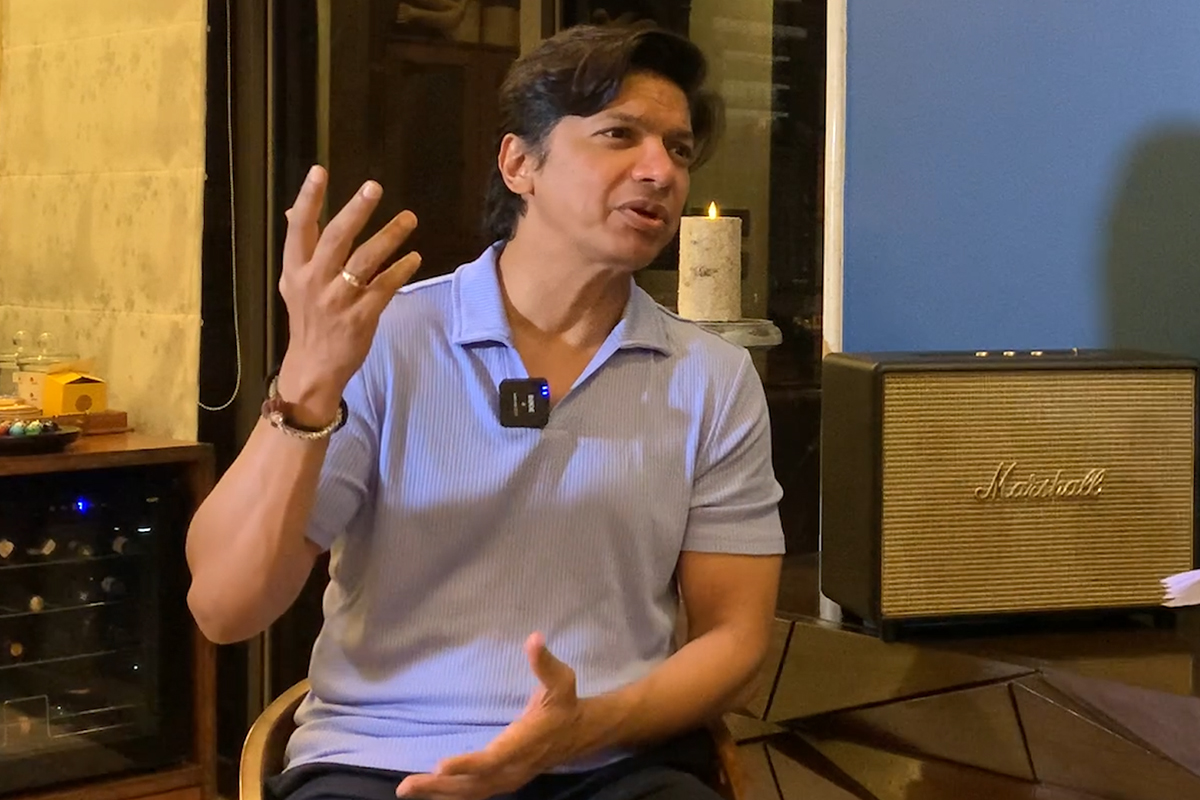In the competitive realm of the music industry, success is often believed to be contingent on the support of big banners. However, there are exceptional artists like Shaan, whose journey defies conventional norms. From the very beginning, Shaan’s talent spoke for itself, eliminating the need for him to beg for work or compromise his artistic integrity. With close connections in the industry and a strong rapport with composers, he secured prominent projects without having to plead for opportunities.
Yet, the landscape of the music industry has witnessed a transformative shift. In today’s era, the importance of big banners in determining the success of a song has become undeniable. Views and visual appeal now dominate the scene, making it arduous for small-budget films or independent projects to gain traction and achieve hit status. Shaan acknowledges this reality, recognizing that the dynamics have changed significantly since his early days in the industry. He reflects on the fact that despite his early success, he was not often offered the big, intense numbers or the title tracks that can propel an artist to stardom.
Amidst these changes, one individual who played a pivotal role in Shaan’s career is the influential composer and music director, Himesh Reshammiya. Himesh’s guidance and mentorship provided Shaan with an incredible platform to explore his versatility as an artist. Unlike others who may have typecast him, Himesh offered a range of opportunities, allowing Shaan to showcase his talent in diverse genres. From groovy tracks to soothing melodies, Shaan flourished under Himesh’s guidance, leaving an indelible mark on the music landscape.
Join Rohan Dua in this Episode of Catch The Stars as he delves into the intriguing journey of Shaan and discovers the untold stories and experiences that have shaped Shaan into the iconic musician he is today.
Excerpts from the interview
ROHAN DUA: Do you have to fight for big banner projects?
SHAAN: It seems to be the case these days. That’s why I haven’t been able to secure many big banner projects, as I’m not someone who actively fights for them.
ROHAN DUA: Is it because you didn’t have to beg for work?
SHAAN:Well, growing up in the industry, being a Bandra boy, and having close connections with people like Sohail and Salman, I never had to resort to begging for work. In the past, I received big banner projects based on my strong relationships with composers. However, trends have changed, and I’m not sure what exactly happened. Regardless, I take it in stride and I’m satisfied with the work I’m currently doing.
ROHAN DUA: Is it possible to be successful without the support of big banners?
SHAAN: Not in today’s industry. During my time, there was ample opportunity because we relied on radio. Radio hits played a significant role in establishing success. For instance, the songs from the small-budget film Jhankar Beats became huge hits. However, nowadays, the emphasis on views and visual appeal makes it difficult for small-budget films to achieve the same level of success without better production quality.
ROHAN DUA: “Behti Hawa Sa Woh” was a significant moment in your career. Could you share more about it?
SHAAN:When Shantanu Moitra presented the song to me, I wasn’t sure about its potential success. I knew “All Is Well” would be a massive hit, and Sonu Nigam had the lead vocals for Aamir Khan’s character. However, Shantanu da had faith in the song, and to this day, people approach me to express how much it means to their children and how soothing it is for them.
ROHAN DUA: Yes, it reminds everyone of that one person who used to be unique and lost in their own world during college.
SHAAN: I strive to live by the lyrics of this song.
ROHAN DUA: How was it singing for Balki’s Paa? It was a very unconventional song.
SHAAN: I remember singing for Ilaiyaraaja. He is one of those film directors who prefers singers to adhere closely to his instructions. When I started experimenting with “udi udi,” he approached me and asked, “What did you do there? Don’t you appreciate my notes?” He said it in a sweet manner, but he had a clear vision of what he wanted from the singer.
ROHAN DUA: With “ladki kyu na jane kyu,” you achieved another success. It wasn’t one of those erotic love songs, but it added a cute touch to young romance.
SHAAN: After “bheegi hot tere,” all the erotic numbers went to Kunal Ganjawala. I was mostly in the midfield, never quite hitting the mark with intense numbers or title tracks. Even in Fanaa, I sang “Chand Sifarish,” but the intense number “Mere Haath Mein” went to Sonu Nigam. I was often assigned the lighter, more playful songs.
ROHAN DUA: You also sang for Rahman in PS 1. How was the experience?
SHAAN:Well, it was one of the most challenging assignments of my life. I even reached out to Rahman over email to confirm if he truly wanted me to sing it. He provided me with confidence, and somehow I managed to deliver. But it wasn’t an easy task.
ROHAN DUA: You sang the grooviest songs with Himesh Reshammiya. He must have had a major influence on your career, right?
SHAAN: Absolutely. Himesh never pigeonholed me. He offered me a wide range









